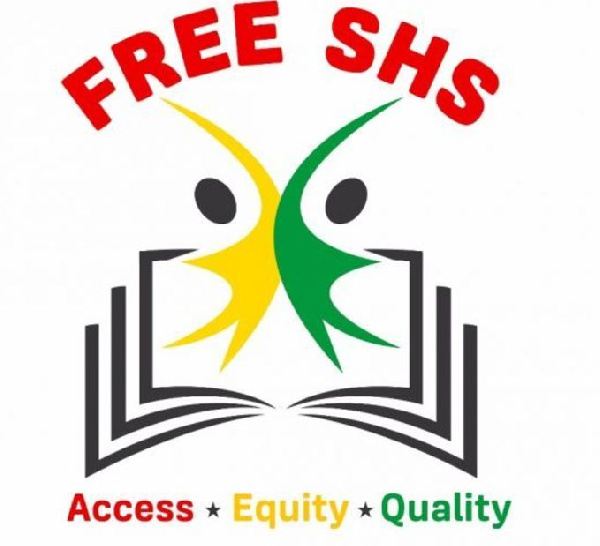Calls for a review of the Free Senior High School (FSHS) policy by stakeholders, including some government officials, have made a review inevitable for the next government.
However, the new FSHS Bill to be presented to Parliament has created a dilemma for many concerned citizens.
Civil society organisations (CSOs), teachers’ unions, academia and other political parties have all expressed concern about the decision to introduce a Free SHS Bill, which seeks to enshrine the policy and make it untouchable for review.
The legislation, when passed, will make the implementation of the free SHS policy binding on successive governments in its current state leaving little room for any adjustment.
CSOs, including the Africa Education Watch (Eduwatch), have questioned the rationale behind the government’s decision to introduce the FSHS Bill to give legal backing to the policy when the policy already has legal backing.
Executive Director of Eduwatch, Kofi Asare, mentioned that perhaps, the only reason for this bill is because it is a legacy issue as it looks more of a political legacy.
“I am a bit lost because in December 2020, Parliament passed a law called the Pre-Tertiary Education Law which is Act 10(49). This law, which was assented to on 29th December, 2020, has free SHS captured under section 3 which says that ‘Secondary education in its different forms, including TVET, shall be free and accessible to all eligible candidates’. So, this provision in the pre-tertiary education law is to give legal and binding effect,” he said.
A professor of Educational Leadership at the University of Cape Coast (UCC), George Kweku Toku Oduro, believes the government’s decision to push through an FSHS Bill to Parliament is simply a strategy to counter calls for a review by civil society groups and other stakeholders.
He holds the view that the incumbent administration is not being honest with Ghanaians, adding that the proposed bill has no legitimate basis.
He contextualised that in the government’s IMF report in January 2024, it stated – as part of its strategies in the educational sector – that it would review and rationalise the free SHS Programme; therefore, this new bill is uncalled for.
Prof. Oduro argued that if that is what the New Patriotic Party (NPP) Government promised the IMF, then there is no justification for rushing to introduce a free senior high school bill.
The National Association of Graduate Teachers (NAGRAT) does not see the basis for the sudden interest of the Majority to introduce legislation on the Free SHS propramme.
President of NAGRAT, Angel Carbonu, emphasised that there is no point in toeing this line when no one has taken on the government over its legality or otherwise, hence the focus should rather be on making it better.
“I have not heard anybody, civil society, media, unions, political organisation, I have not heard anybody condemning the Free Senior High School and I have also not heard anybody boldly come to say that the Free Senior High School should be abolished. What I have heard people say is to critique the functionality of the programme as it is now, and question whether resources are adequately and timeously being sent to the institutions for effective teaching and learning to take place,” he said.
Education Sector Legal Reforms
The Akufo-Addo Administration has, since 2020, made free Senior High School (free SHS) law in Section three of the Pre-Tertiary Education Act, 2020 (Act 1049); made free Compulsory Universal Basic Education (fCUBE) law in Section two of Act 1049; mandated the Ghana Education Service (GES) and TVET Service to implement basic, secondary and TVET policies & programmes of the Ministry of Education under Act 1049.
It also passed the Education Regulatory Bodies Act, 2020 (Act 1023) to affirm the mandates of the National Teaching Council (NTC), National Council for Curriculum and Assessment (NaCCA), National Schools Inspectorate Authority (NaSIA), Commission for TVET (CTVET) and Ghana Tertiary Education Commission (GTEC) as regulators.
It further passed the Complementary Education Agency Act, 2020 (Act 1055) to establish the Complementary Education Agency (CEA) to handle Complementary Education, including Complementary Basic Education (CBE).
Having done these, the next strategic legislative reform activity should be to develop Legislative Instruments (LI) to provide the requisite operational frameworks for properly implementing these new laws.
Secondly, it should amend the West Africa Examination Council (WAEC) Act to deal with the modern dynamics of the ever-increasing exam fraud that continues to threaten the credibility of secondary education assessment in Ghana.
Kofi Asare said: “Exerting our last-minute energy on another law for free SHS, apart from being duplicating, is one I struggle to prioritise.
“If I qualify to advise the Minister of Education and the President, I would recommend an LI for the Pre-Tertiary Education Act, 2020 (Act 1049), which would flesh out the framework for operationalising the fCUBE and free SHS/TVET legal provisions in Act 1049, including funding norms.”










